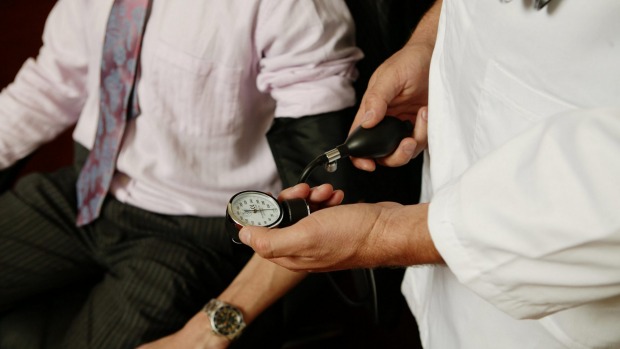
“Better late than never”: Independent senators John Madigan and Nick Xenophon said the government’s Medicare review is a step in the right direction. Photo: Andrew Quilty
Tony Abbott’s former health advisor has questioned the appointment of a former Australian Medical Association president to head a key plank of the government’s Medicare review, saying he is too much a product of the doctor’s lobby group to be independent.
Terry Barnes, who advised Mr Abbott when he was health minister, said the government’s backdown on a GP rebate cut and appointment of former AMA president Steve Hambleton to a primary care advisory group indicated that doctors were calling the shots.
“The whole approach seems to be cementing the AMA’s dominance over health policy,” Mr Barnes said.
“The AMA is calling the pace of reform.”
The primary care advisory group is expected to explore new payment arrangements for the sector, the role of insurance companies in preventative health and incentives for doctors to keep patients out of hospitals.
Dr Hambleton has gone on the record opposing the GP co-payment, the role of private health insurance in primary care, any expansion in the activities of pharmacists in primary care and the existence of nurse practitioners in GP surgeries, which undermined his ability to be independent on health policy, Mr Barnes said.
“I don’t doubt Steve Hambleton’s bona fides but he’s got an AMA record and an AMA world view,” Mr Barnes said.
The industry has broadly welcomed the sweeping review of the Medicare system launched by Health Minister Sussan Ley on Wednesday, and crossbenchers have described it as “better late than never”.
Labor’s health spokeswoman Catherine King “cautiously welcomed” the review but warned the government against using it as “another excuse to rip money out of healthcare”.
Dr Hambleton, who was president of the AMA for three years until May 2014, said his comments as president of the AMA did not necessarily reflect his personal position.
“The role of the president is to present the view of the organisation,” Dr Hambleton said.
“It would be fair to say that Terry doesn’t know what my personal views were and if anyone else knows what my personal views were I wouldn’t be doing a very good job as AMA president.”
The review was a unique opportunity to respond to the current challenges of the health system and not those that existed 30 years ago when Medicare was invented, he said.
It comes after the government abandoned two iterations of its contentious GP co-payment, which had been unveiled in the first Abbott government budget.
But in comments that will boost the government’s attempt to find savings in the federal health system, two senators who had opposed the GP co-payment welcomed the more consultative attempt to find savings in the health system.
Independent South Australian senator Nick Xenophon – who opposed the GP co-payment – welcomed the review, which will consult with doctors and patients, and said there “absolutely” needed to be greater efficiencies in Australia’s health system.
“This is a smart way to do it, it’s a pity we have wasted more than 12 months but better late than never,” he said.
“The Health Minister is on the right track, but I also think they need to listen to the public and private hospitals, preventative health experts, and also to private health insurers.”
Fellow independent Victorian senator John Madigan, who also opposed the co-payment, said “this is the way they should have gone about it from the start”.
“This a step in the right direction if the government is genuinely going to engage with doctors, the community, to work out a fair equitable and sensible approach to the issue of potential health reform,” he said.
“We all make mistakes, let’s hope we learn from our mistakes.
“If you talk to doctors, healthcare professionals, there are problems in the health system, some areas may be underfunded, others may not be targeted as well as they could be. If work collaboratively you can achieve good all rounds results – good social and good economic results.”
Ms King said Labor had begun reviewing the Medicare Benefits Schedule in government and that $1 billion in savings had been realisedon just two items over five years.
“The government should be working with clinicians to use this review to improve the quality, safety and cost-effectiveness of healthcare to sustain Medicare and modernise Medicare as an affordable healthcare system for all Australians,” she said.
“The government must make clear this is not just another way to cut money from health and instead commit to reinvesting an savings back into the healthcare system.”
But Family First Senator Bob Day, who has previously argued for a lower co-payment of around $2, warned doctors had a vested interest in the review as major recipients of funds from the Medicare system.
“There is an old saying, never ask a barber if you need a haircut. At the end of the day they are the net recipients,” he said.
On the co-payment, Senator Day said the federal government had “done its best, but as usual has done it in a ham-fisted way”.
“The government did a review, it said it was best to send a price signal, I did my best to persuade the government it should be minimal, $2, to ensure no backlash,” he said.
A small co-payment would send a price signal that “nothing is free”, he said.
